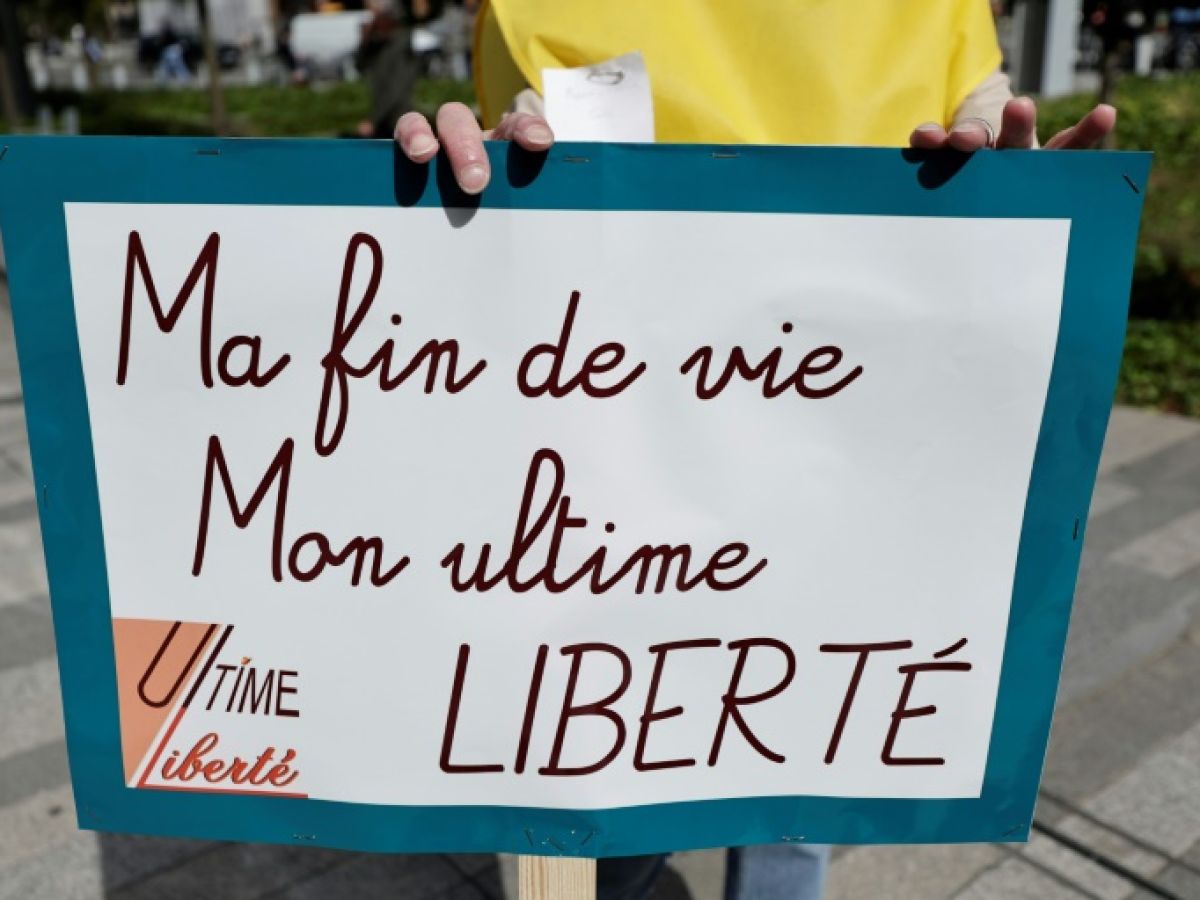With its parade of doctors and intellectuals specializing in the subject, and anonymous people who have helped their loved ones to end their lives, the Paris trial of assisted suicide activists has transformed itself, for its first week, into a platform for assisted dying.
Aged between 74 and 89, twelve members of the Ultime Liberté association are on trial for having, between August 2018 and November 2020, helped dozens of people buy pentobarbital online, a barbiturate that causes rapid and painless death.
These retirees are only being prosecuted for offenses related to trafficking in illicit substances, not for incitement or assistance to suicide.
Through the witnesses called by the defense, the hidden continent of assisted dying for patients in great pain is emerging before the courts. An illegal act, but one nonetheless practiced throughout France, in the secrecy of families, behind closed bedroom doors.
"On behalf of all the anonymous doctors who perform between 2,000 and 4,000 euthanasias per year," retired Dr. François Guillemot told the judges about the last moments of Yves (not his real name), a metalworker consumed by a huge brain tumor who had contacted him to help him pass away.
After a final conversation with his family, the patient asks them to leave his room. He and the doctor are left alone.
"He really looked me in the eye. He said 'go ahead,' using the informal "tu" form. So I injected the product. When I left, I told myself that I was completely in harmony with myself. Like Bernard Senet (one of the main defendants, editor's note), I believe that active assistance in dying is care, certainly the ultimate care," says this end-of-life activist.
Medical support in dying is actually a relatively recent subject, a consequence of scientific progress and the increase in life expectancy, puts into perspective the former journalist François de Closets, 91 years old, author some twenty years ago of an investigative book on the issues of the end of life in France.
"In the 19th century, medicine knew nothing about death. The doctor would leave and meet the priest who would arrive with the last rites. Death was the priest's business, not the doctor's. Modern medicine has taken charge of death," the essayist explains in a tired voice.
– “To die badly” –
According to him, the reluctance of French legislation on the subject, compared to Belgian or Swiss laws which allow access to assisted suicide under certain conditions, is attributable to the country's Catholic tradition.
"With potassium chloride, man dies without agony. It turns out that religions don't like that. For religions, men must join their creator, but at the end of their agony," the former television personality castigates.
Drawing parallels between the movement for assisted dying and the campaign for the legalization of abortion in the early 1970s, many witnesses welcome the legislative and societal progress that they believe the text voted on at first reading in May by the National Assembly and which is now awaiting examination by the Senate represents.
This bill by MP (MoDem) Olivier Falorni would create a "right to assisted dying" in France. It would legalize assisted suicide, and exceptionally, euthanasia, without these words, which are deemed to have negative connotations, appearing in the text.
In France, there is "an ideological divide on this subject which, in my opinion, is not bridgeable, at least given the current state of the forces present," retired doctor Véronique Fournier, a specialist in questions of old age and medical ethics, noted to the magistrates.
"Our fellow citizens are not so much afraid of dying as of dying badly," she believes. "What they fear is having to live a very long period of very poor quality of life, very deteriorated, unbearable, and which loses its meaning for them as well as for their loved ones. A life whose salt has disappeared."
The second week of the trial, scheduled to end in early October, will be devoted to questioning the defendants.

